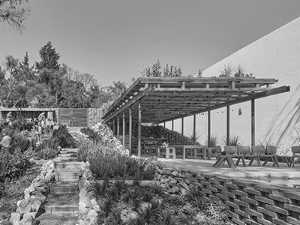A fully recyclable pavilion
The studio VERTEBRAL has created a sustainable pavilion using recycled materials recovered from their previous constructions. The result is a 100% recyclable building that not only minimizes environmental impact but also explores new construction processes in the architectural projects. Every element, from structural modules to compositional units, has been designed with an innovative approach, leveraging advanced design techniques to optimize the reuse of available resources.























